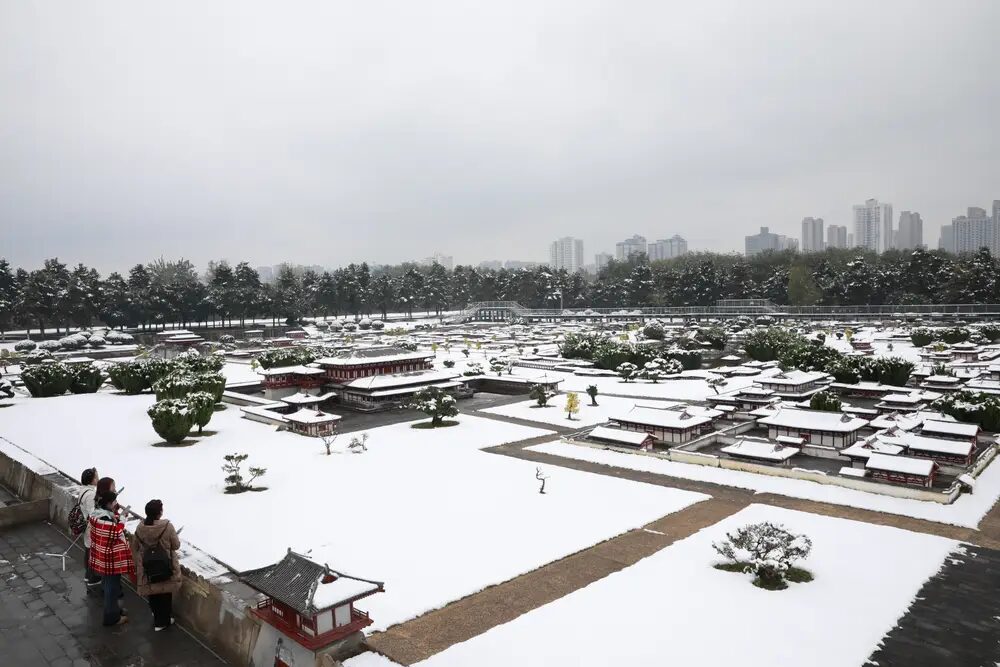
- Obtaining high status was likely as easy for men in the Tang Dynasty as for men in the modern US, a study suggests.
- It found that social mobility for men at the time could be compared to that of the 1960s in the US.
- These men weren't aristocrats, but became bureaucrats through the rigorous imperial examination.
The study, published in the peer-reviewed Proceedings of the National Academy of Sciences, analyzed education, family status, and ranks of officials in the Tang Dynasty, and found that social mobility at the time was comparable to standards in the 1960s and 1970s in the US.
The research team, led by Michael Hout, a professor of sociology at New York University, combed through thousands of epitaphs describing the lives of these officials, who lived in the 7th to 10th century.
These were men who had essentially made it in life, Hout told Business Insider.
"They had sufficient wealth to afford a fancy tomb," he said. Their high status also came from their positions in the imperial system, he added.
Their epitaphs are highly detailed, and provide a trove of information on the officials' ancestral origins, family backgrounds, and careers, the researchers said.
"From a remarkable fraction of them we were able to recover information about their fathers, their grandfathers, their branch membership," Hout said.
An epitaph describing the life of a Chinese elite, Du Zhong Liang. His name is identified in red, his grandfather's and father's names and ranks are identified in blue, and his career is described within the yellow markings. The light blue markings describe when he died.Courtesy of the National Library of China
Some of these men entered the bureaucracy by passing the imperial examination, which was seen as a ladder to success during the Tang Dynasty.
Under Empress Wu Zetian, a famed figure in Chinese history who ruled from the year 665 to 705, the imperial exam became far more prominent in the bureaucracy, with at least 16% of male elites after her reign obtaining a degree, the researchers said.
Hout's team focused on the officials who had passed the exam, and whether their father's rank was correlated with their own.
The researchers found a correlation of 0.41, meaning that you had about a 41% chance of predicting that official's success by looking at the status of their father, Hout said.
"That is less than estimates for men in nineteenth-century Europe but not far from contemporary estimates for American men, despite the broader base and different measures of social standing in contemporary studies," the study said.
It's also unlikely that passing the imperial exam was a status symbol coveted by the elite, which might have made it a rubber-stamp achievement bestowed to those of high status, the researchers said.
They found that coming from a prominent clan or having a powerful father had no significant impact on whether someone passed.
Women, however, were unlikely to be part of the Chinese bureaucracy, and few would have taken the imperial exam, Hout said.
So it's unclear what social ladders were available to women of the Tang Dynasty, but Hout's team said they're now looking into marriage networks in that period.
This social mobility from the imperial examination also probably didn't extend to the lowest rungs of Chinese society at the time, because the man had to be able to take the exam. A poor man would need a sponsor or mentor to pay for their education, Hout said.
"The starting point is literacy. Say, a son of a prosperous merchant could do that. But I wouldn't see a farmer's kid being able to pass the exam," Hout said.
The rigorous exams are remembered today in China as a long-lasting symbol of meritocracy that was a game-changer for ambitious men in imperial times. Modern civil service exams in China mirror the concept closely.



However, I suspect things are very different under the current communist rule.
The CCP seems to have a chip on its shoulder regarding imperialism and capitalist meritocracy.